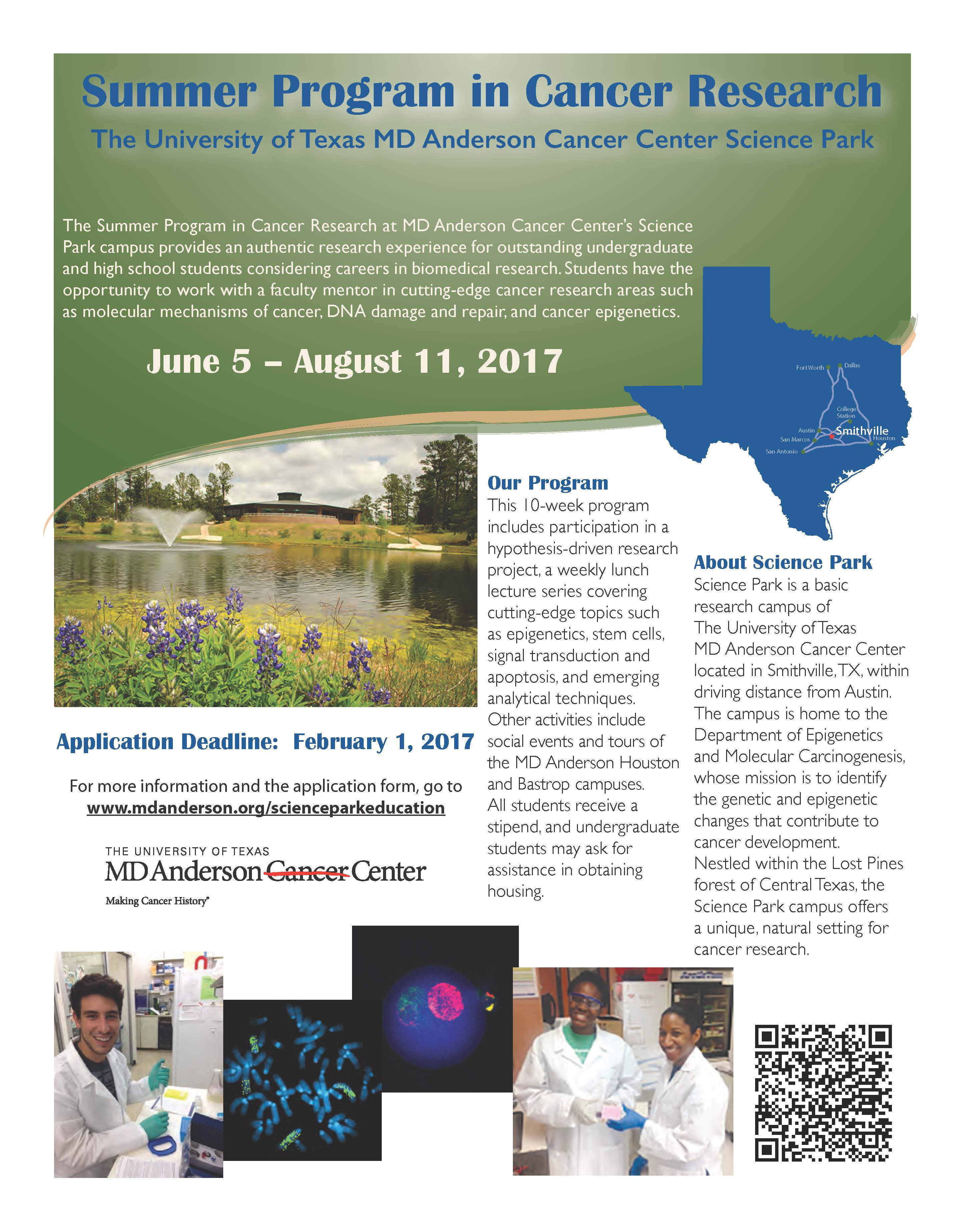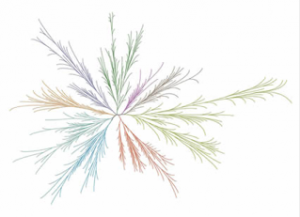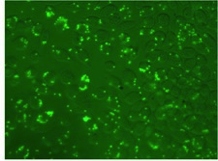For over twenty-five years, The University of Texas MD Anderson Cancer Center Science Park has sponsored a Summer Program in Cancer Research (SPCR) for undergraduate students majoring in math or science. The program is designed to allow students to work on an independent, hypothesis-driven, research project in a biomedical research environment. For many interns, this experience is very helpful in making subsequent career choices.
Please review the announcement flyer for the 2017 program. Minority students are encouraged to apply. Interested students can get more information and download the application on our website at http://www.mdanderson.org/scienceparkundergraduateresearch (scroll down to ‘Our Educational Programs’). Please note that the deadline for receipt of the completed application packet is February 1, 2017.
The professional research staff includes junior and senior faculty, postdoctoral fellows, graduate students and research scientists. All members of the faculty are involved in education programs, which include training at the postgraduate, graduate, undergraduate and high school levels. Thank you for your assistance in publicizing our program. If you or an interested student have any questions or need more information, please feel free to contact me or Chris Contreras, Program Coordinator.
David Johnson, Ph.D.
Professor, Department of Epigenetics and Molecular Carcinogenesis
Director, Summer Program in Cancer Research
The University of Texas MD Anderson Cancer Center
Science Park/Research Division
1808 Park Road 1C
Smithville, TX 78957




